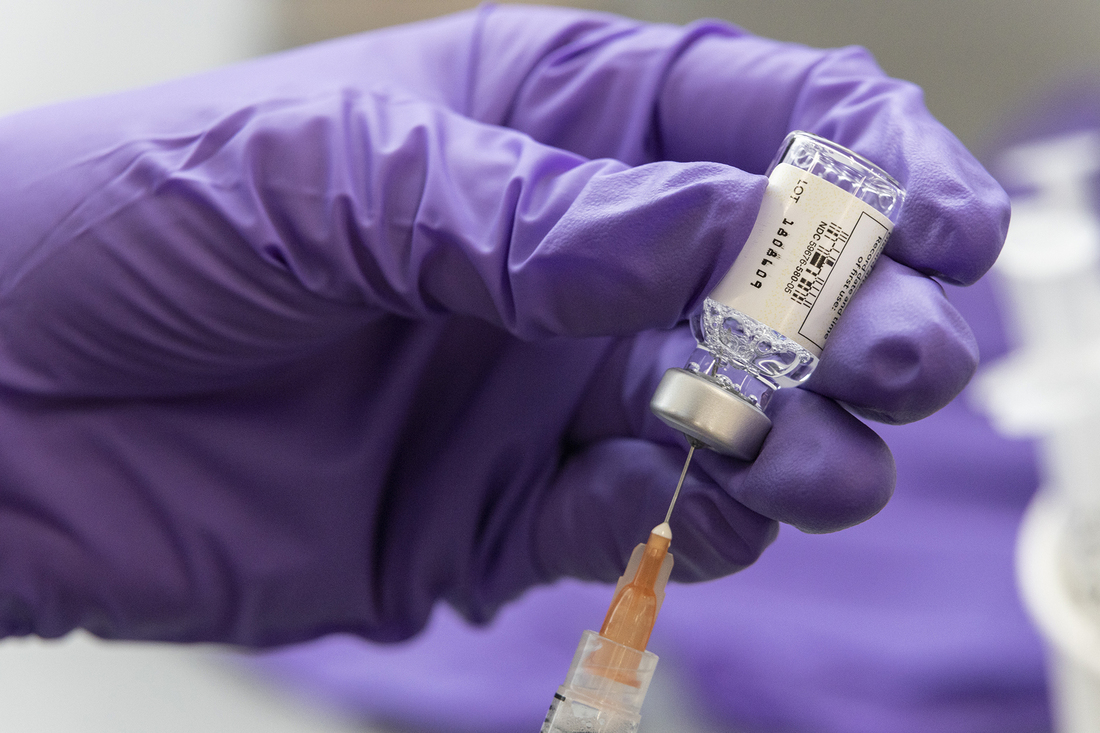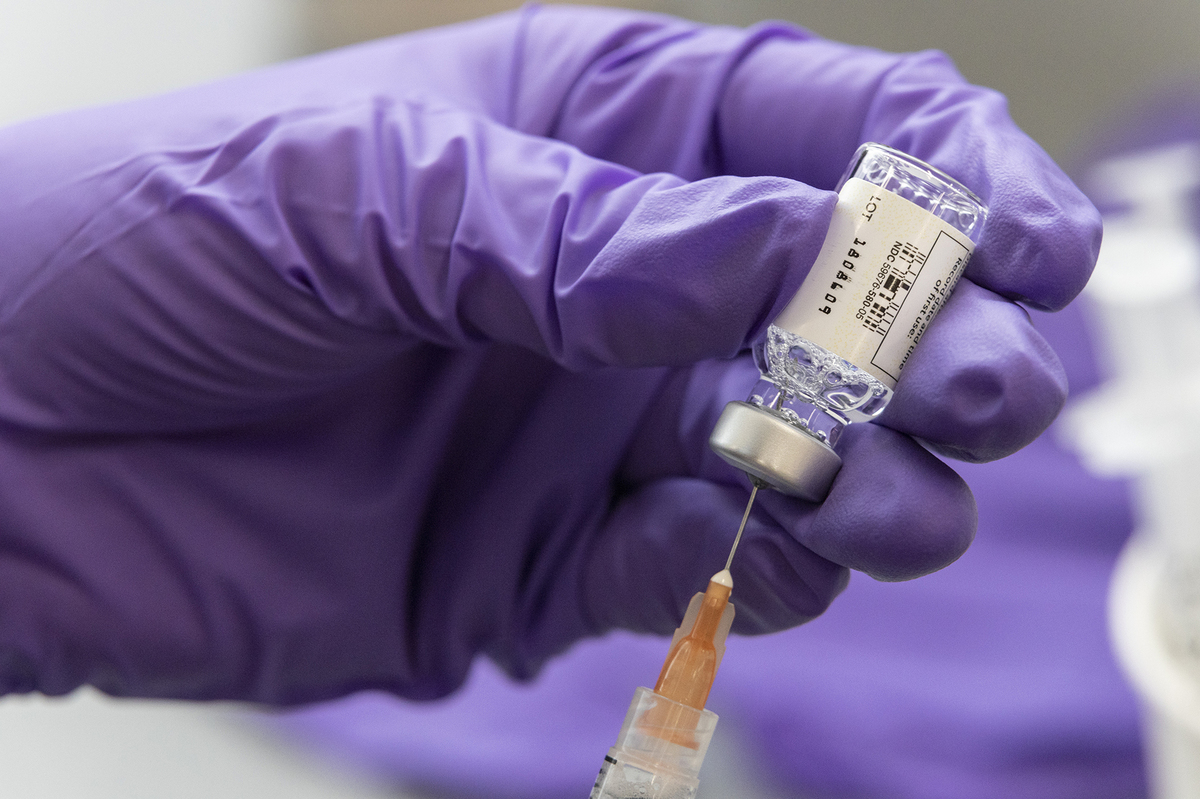
Government health officials are recommending a “pause” in vaccinations with the Johnson & Johnson COVID-19 vaccine.
Stephen Zenner/Getty Images
hide caption
toggle caption
Stephen Zenner/Getty Images

Government health officials are recommending a “pause” in vaccinations with the Johnson & Johnson COVID-19 vaccine.
Stephen Zenner/Getty Images
Federal health officials have called for a pause in the use of the Johnson & Johnson vaccine, after reports that six women who got the vaccine developed blood clots afterward. Close to 7 million people have gotten this vaccine in the U.S. to date.
The Centers for Disease Control and Prevention says the blood clots are extremely rare but that it is reviewing the cases. Until that review is complete, the agency called for this pause in distribution “out of an abundance of caution.”
So how worried should you be about these rare cases? And how would you know if you might be at risk? We have answers.
Who is being affected by these blood clots?
The clots that have been reported so far are in women between the ages of 18 and 48. Their symptoms emerged six to 13 days after vaccination. However, at a press conference Tuesday, acting commissioner of the Food and Drug Administration, Janet Woodcock, said at this point there’s not enough information to say whether any particular subgroup is being affected.
Dr. Anne Schuchat, principal deputy director of the CDC, added that there are too few cases at this point to determine what specific risk factors might predispose someone to developing these clots.
What kind of clots are we talking about?
The FDA says the clots are a rare and severe type that happen in the blood supply that drains the brain. It’s called cerebral venous sinus thrombosis or CVST, and it is being seen in combination with low levels of blood platelets (a condition called thrombocytopenia).
The symptoms of CVST vary but they can include headache, blurred vision, fainting or loss of consciousness, loss of control over movement in part of the body, seizures.
If you got the Johnson & Johnson vaccine recently, should you be on the lookout for symptoms? Which ones?
The CDC and FDA say these events appear to be extremely rare but generally occur one week to “not longer than three weeks” after vaccination. The FDA says if someone develops very severe headaches, abdominal pain, leg pain or shortness of breath within three weeks after getting the shot, they should seek medical attention and let doctors know they were recently vaccinated.
Many people who get vaccinated develop side effects within the first several days of vaccination, including flu-like symptoms and headaches, that are not serious, says Dr. Peter Marks, the director of the Center for Biologics Evaluation and Research at the FDA. “It would be more important if someone reported to an emergency room with a very severe headache or blood clots,” Marks says.
How is this condition treated?
Health officials emphasize that these clots should not be treated the way other clots often are. Most importantly, Marks says doctors should avoid using heparin, a standard blood-thinning treatment, because in these clots it “can cause tremendous harm, or the outcome can be fatal.”
But there is no simple substitute. Treatment needs to be individualized, the CDC’s Schuchat says, because these patients don’t simply have blood clots, they also have lower levels of platelets. And that can raise a person’s risk of increased heavy bleeding, because it makes it harder for blood to clot.
Marks at the FDA says ideally, patients with this rare condition should be referred to physicians experienced in treating blood clots. The need for this specialized treatment is one reason the CDC and the FDA saw an urgent need to get the word out about this rare combination of side effects.
Do doctors know what is causing these clotting events? What’s the mechanism?
Scientists have a working hypothesis, but don’t have complete answers. Marks at the FDA says the leading hypothesis is that, on rare occasions, the vaccine can trigger an undesirable immune response. So instead of simply prompting the body to produce antibodies that protect against the coronavirus, people also generate antibodies that affect blood platelets. That could explain why they are depleted among people with this rare condition.
Researchers in Europe noted this phenomenon among people who suffered similar side effects after receiving the AstraZeneca vaccine.
